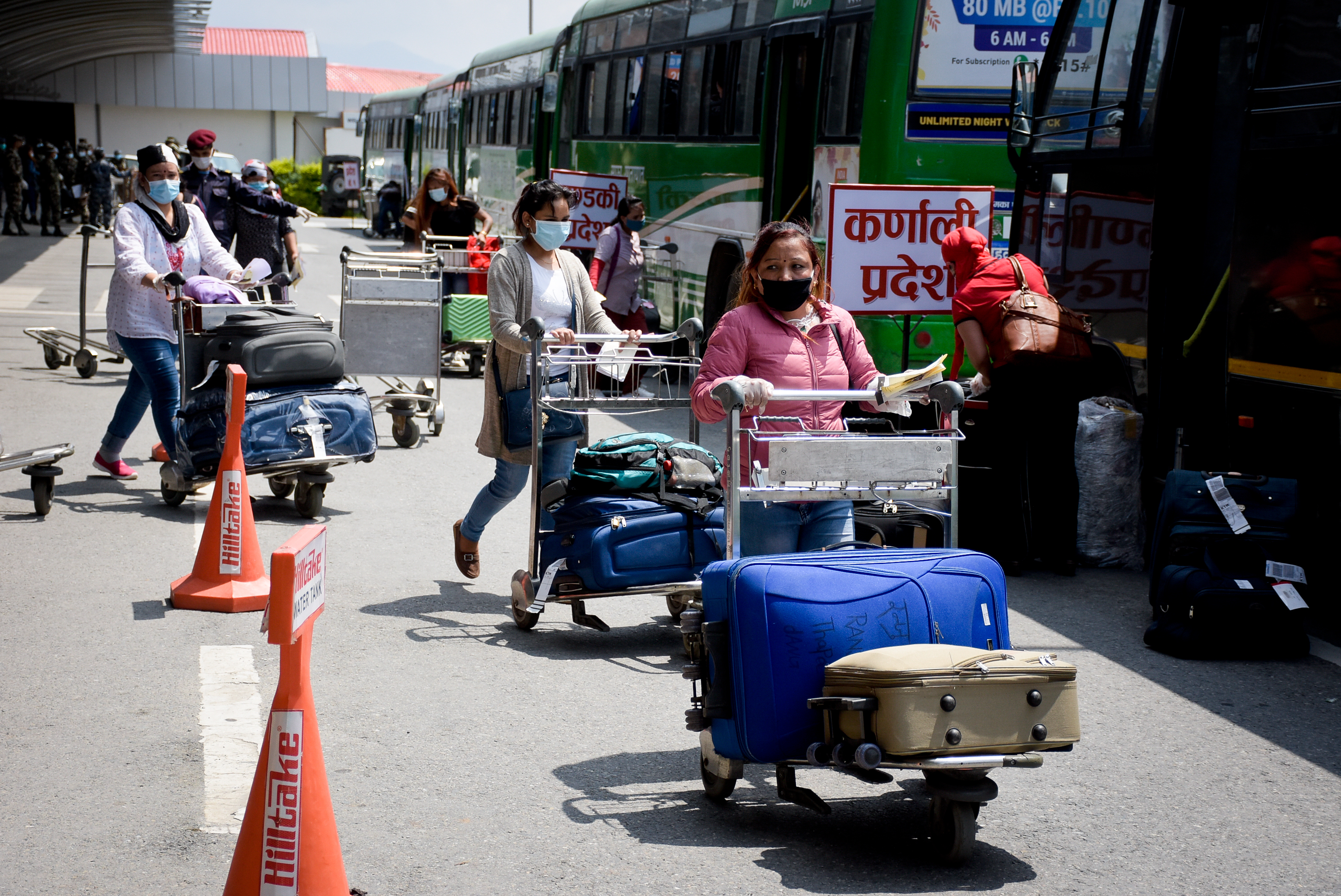Bread winners return home, kin living on loan
Nepali migrants who returned from India have already spent their savings
KATHMANDU, JUNE 15
Birendra Das, a resident of Kamalamai Municipality, Dhanusha, who is the sole bread winner for his family, used to work as a waiter in Maharashtra. He used to send INR 12,000 per month to support his family of eight. After India announced the nationwide lockdown in March, he had to return home. “My family does not have money to buy food or other essentials. We are borrowing money from neighbours.” he said. Das has been in quarantine in Janakpur for nine days awaiting result of his swab samples. “I had undergone an open heart surgery three years ago and I feel uneasy. I want to go home but they are not allowing me to go home. How long do laboratories in Kathmandu take to diagnose COVID-19 infection?” he wondered.
Das is not the only migrant worker who has suffered due to loss of job in the face of COV- ID-19 pandemic.
Hamid Raza, 32, a software engineer from Jaleshwar Municipality, Mahottari, who returned from Qatar three months ago, didn’t get salary for the last four months and his brother Mohsin, 22, who also worked in Qatar as an information technology assistant, didn’t get paid for the last seven months.
When COVID-19 infection spread to Qatar three months ago, Hamid and Mohsin decided to return home. They flew to Nepal without even informing their employer. He said if the crisis prolonged, he would have to borrow money from lenders to meet his family’s expenses.
Social activist Saroj Ray, who has helped collect blood money for some Nepali migrant workers in the Gulf region, said more people were going to the southern states of India for employment than to the Gulf countries or Malaysia. According to him, Nepali migrant workers working in India earn less than those working in the Gulf region.
Those who returned from India faced immediate economic crisis because they did not have any saving. “Those who work in the Gulf region save money in the hope of building concrete houses. They don’t face immediate economic crisis but if the COVID-19 pandemic prolongs, they too will face problems feeding their families,” he said and added that there was high risk of migrant workers indulging in criminal activities due to loss of jobs.
“Nepali migrants who returned from India have already spent their savings. Less than five per cent migrant workers got some money from their employers during the lockdown,” he said.
Advocate Shom Prasad Luitel, who champions the cause of migrant workers said loss of jobs in the labour destination countries would hugely impact country’s economy as around 56 per cent households of Nepal received remittances from foreign countries.
Spokesperson for Nepal Rastra Bank Gunakar Bhatta said his office expected a decline in remittance by 10 per cent this year.
Last year, the country received Rs 879 billion in remittances.
This year it will receive only Rs 800 billion in remittance He said remittance helped Nepali families improve their living standards and increased people’s access to education and health. At micro level, remittance, which is around 25.4 per cent of the GDP, has increased bank savings and credit disbursement, increased government’s revenue collection and provided the government adequate amount to import goods from foreign countries, besides reducing poverty.
Bhatta said the government needed to focus on creating jobs in the agriculture sector, speed up mega development projects and help MSMEs so that more employment opportunities could be created in the country for migrant workers.






